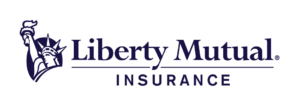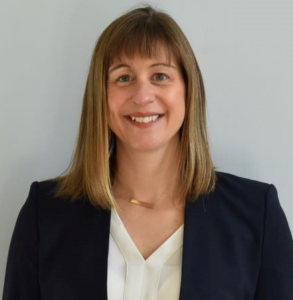By Jake Hofstetter | Research and Policy Associate
The coronavirus crisis has impacted every part of society, and even public institutions are having to be flexible and creative to respond to the pandemic. Schools are using remote learning, governments are offering unemployment applications online, and libraries are lending e-books. The court system is no different. With social distancing in place and public gatherings prohibited, courts in Massachusetts have mostly closed and moved many of their hearings and services to remote formats. Although tragic, the COVID-19 pandemic creates an opportunity for us to experiment with new ways of delivering justice and to determine how well remote services and courts hearings work once the coronavirus emergency has subsided. The question will be not only how well these measures have functioned in a crisis, but what we can learn from remote services to potentially make our legal system work more fairly after the pandemic ends.
Massachusetts’ legal system has responded quickly to combat the spread of coronavirus. The Trial Court has closed all the Commonwealth’s courthouses and postponed all proceedings except for emergency matters related to criminal activities, child welfare, domestic violence, and other urgent concerns. According to the courts’ order, these hearings should be held remotely (if possible), using technological tools such as telephones or video conferencing. All non-emergency concerns have been delayed until at least May, and indigent litigants now are able to file their forms electronically (e-file) free of charge in cases where e-filing is available. Legal aid organizations have also begun to offer more remote services, and the six Court Service Centers, court-run centers that provide self-help assistance to litigants, have started limited remote services for cases that the courts are still handling.
What is happening in Massachusetts mirrors what is happening nationally. At least three quarters of states have restricted entry to their courthouses while every state has generally suspended proceedings or allowed local entities (like counties or cities) to suspend proceedings. Three states have mandated the use of remote/virtual hearings while many more, including Massachusetts, have partially required or urged the use of virtual hearings. These steps have led some states to use Zoom, Microsoft Teams, Webex, and other software to hold virtual hearings. All of these moves indicate that remote court proceedings and legal services are having a moment, the scale of which wouldn’t have been possible to imagine only a few months ago.
Remote services are not just convenient workarounds for our current crisis – they also represent powerful tools for increasing access to justice for everyone. Even when there are not travel restrictions or social distancing regulations, the act of coming to court can create a serious barrier for many working and low-income people. It requires taking a day off work, finding childcare, coordinating transportation, and other practical challenges for many litigants. Plus, most cases don’t require only coming to court once, they require multiple appearances that create an even larger burden, especially for court users without lawyers (self-represented litigants, or SRLs for short). On top of that, many litigants who seek to take advantage of free self-help services have to return to courts and wait in line for long periods due to limited capacity at Court Service Centers. Court buildings themselves are also intimidating for many people. Legal jargon, high-priced lawyers, and complicated forms can make anyone nervous, especially those without legal representation.
But it’s not just hearings and legal assistance that can go remote. Court systems can also use existing programs that allow litigants to fill out court forms online and then e-file their documents. Known as document assembly programs, this type of software guides users through an interview where they answer questions and enter information that pertains to their case. After the user completes the digital interview, the program takes the user’s information and automatically fills out the relevant legal form(s), similar to how Turbo Tax works. Document assembly programs not only make filling out confusing forms easier but also save litigants the time of having to come to court to file forms or get help filling them out. Efforts to use these programs to respond to the pandemic are already underway in Massachusetts. Suffolk Law School’s Legal Innovation & Technology Lab (LIT Lab) has already started an initiative, known as the Document Assembly Line Project, to take urgent forms from Massachusetts courts and “create mobile-friendly accessible versions of online court forms and pro se materials in multiple-languages.” In its finalized form, this program will let Massachusetts court users fill out documents online within the comfort and safety of their own homes.
Of course, remote services are not without drawbacks. Holding hearings over Zoom or a conference call presents the same challenges that normal staff meetings do: people talk over each other, internet connections go out, people get distracted. The same populations that already struggle with finding representation or navigating the legal system may not have access to strong enough internet connections or lack technological literacy to use software like Zoom or document assembly programs. For self-represented litigants, using a phone line may also increase confusion over what is going on in their cases. Regarding due process, advocates fear moving to entirely remote hearings may reduce the quality of representation and independent monitoring for defendants. For example, defendants can’t speak to their attorneys privately if they are participating in a conference call with a judge and prosecutor. Similarly, cases may not receive a full or fair hearing due to remote technology or the speed at which the court holds its Zoom call. Remote court hearings also mean a judge is only hearing a voice, not seeing a face, which can remove much of the humanity from what may be intensely personal cases. Any remote solutions will always have to balance these concerns with the convenience of taking court hearings and services online.
When this crisis is over and we are tempted to return everything to “normal,” it will be essential to take the time to look back, and evaluate whether remote services helped or, in some cases, hurt litigants’ efforts in court. This is a chance for us to see how well these tools can work, to test their capacity on a large scale, work out problems, and better understand how going remote can expand access to justice. Once the dust settles, we’ll also have a new trove of data, perspectives, and outcomes from which we will be able to analyze which emergency measures might be worth keeping around for the future. If court systems take advantage of those lessons learned, we’ll have the chance to lay the foundation for remote legal and court services that increase access to our courts and lead to a more welcoming system for all court users.
Want to stay informed on the latest issues Massachusetts Appleseed is working on?
Sign up for our mailing list.
 When Kathy McGrath, the pro bono manager for Liberty Mutual’s legal department, heard about the Homeless Youth Handbook project, she immediately knew she would easily find willing volunteers. And she soon had 25 people signed up to help make a Massachusetts version of the Homeless Youth Handbook that the Baker McKenzie law firm had spearheaded in 10 places already.
When Kathy McGrath, the pro bono manager for Liberty Mutual’s legal department, heard about the Homeless Youth Handbook project, she immediately knew she would easily find willing volunteers. And she soon had 25 people signed up to help make a Massachusetts version of the Homeless Youth Handbook that the Baker McKenzie law firm had spearheaded in 10 places already.
